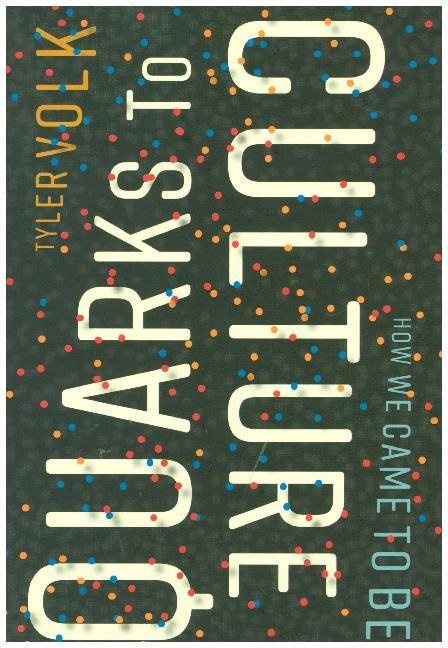Read more
Atoms combine to form molecules, molecules combine to form single-celled organisms. When people come together, they build societies. Our world is nested, both physically and socially, and at each level we find innovations that were necessary for the next level. Physics has gone far in mapping the basic mechanics of the simplest things and dynamics of the overall nesting, as have biology and the social sciences for their fields. But what if anything can we say about this beautifully complex whole? Might there be general processes we can identify? How do phases shape others, and what more can we learn about human existence through understanding an enlarged field of creation and being? Quarks to Culture explores the rhythm within what Tyler Volk calls the "grand sequence," a series of levels of sizes and innovations building from elementary quanta to globalized human civilization. The key is "combogenesis," the building-up from combination and integration to produce new things with innovative relations. Themes unfold in how physics and chemistry led to biological evolution, and biological evolution to cultural evolution. Volk develops an inclusive natural philosophy that brings clarity to our place in the world, a roadmap for our minds. As combogenesis repeats, patterns enrich like an expanding musical progression.
About the author
Tyler Volk is professor of biology and environmental studies at New York University and a recipient of the University's Distinguished Teaching Award and Golden Dozen Award. His books include CO2 Rising: The World's Greatest Environmental Challenge (2008); Gaia's Body: Toward a Physiology of Earth (1998); and Metapatterns: Across Space, Time, and Mind (Columbia, 1995).
Summary
Quarks to Culture explores the rhythm within what Tyler Volk calls the "grand sequence," a series of levels of sizes and innovations building from elementary quanta to globalized human civilization. The key is "combogenesis," the building-up from combination and integration to produce new things with innovative relations.
Report
"The identification of a universal principal - combogenesis - allows one to see the early history of the universe and the evolution of life and the evolution of human civilization through the same lens. An interesting, holistic way of viewing human history back to the origin of the universe." John Mayfield, author of The Engine of Complexity

